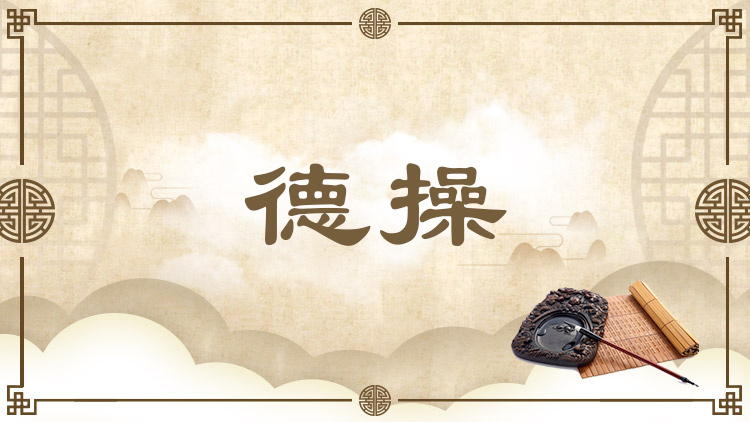德操 Moral Integrity

来源:“学习强国”学习平台
对道德的坚守。出自《荀子·劝学》。荀子认为,人可以通过不断学习来提高自身的道德修养。但人的德行容易受到各种外界因素的影响而有所缺失,因此荀子十分重视对德行的坚守。“德操”是让自己的视听、言语、思虑始终符合道德礼法的要求,不被任何外在事物干扰。具备“德操”是成就完善人格的基础。
This term refers to maintaining moral integrity. It comes from the book Xunzi. Xunzi believed that one could improve his moral cultivation through constant study. However, the impact of external factors could cause moral lapse. Hence Xunzi attached great importance to maintaining moral integrity. This means that one should always be guided by the norms of propriety in his thoughts, statements and acts, and should be unaffected by any external factors. Maintaining moral integrity is the basis for refining one's character.
引例 Citation:
◎是故权利不能倾也,群众不能移也,天下不能荡也。生乎由是,死乎由是,夫是之谓德操。(《荀子·劝学》)
因此,达到很高道德修养的人,权力和利益不能使他倾覆,众人不能使他改变,天下任何事物不能使他动摇。活着是如此,到死也不变,这就叫作“德操”。
Therefore, a person of high moral cultivation is not lured by power or gain. He is not swayed by others, and does not waver in the face of anything. He remains so in both life and death – this is what moral integrity means. (Xunzi)
推荐:教育部 国家语委
供稿:北京外国语大学 外语教学与研究出版社
责任编辑:钱耐安





